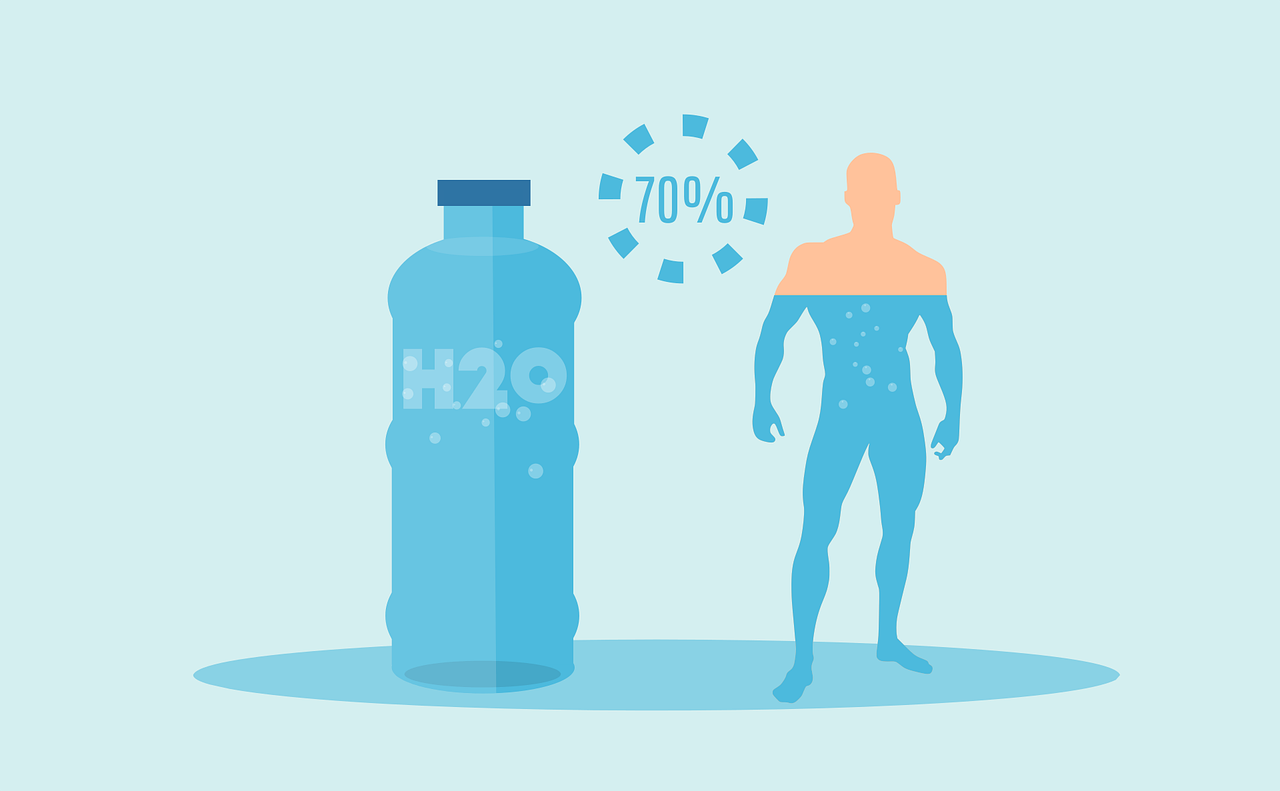|
There is a common misunderstanding that swimmers don’t need to hydrate as much as land-based sports people as we don’t sweat as much in the water. Sure, studies have shown that we sweat less in the pool, however, this does not mean that we do not dehydrate during swim training. In fact, there are many good reasons why we should maintain hydrating during our workouts, triathlons, and open water swims. You may hear Strictly Swimming coaches consistently harp on the need to hydrate before, during, and after practices. Hydrating is vital to the success of all swimmers. We need water to survive obviously. Every cell in our bodies needs water to function properly. It helps carry nutrients and boosts energy, flushes waste products and is vital to maintain body temperature during swimming workouts or at rest. In fact, during exercise generally, water is much more important as more energy and fuel is being used. Even though you may feel cool in the pool or open water, there is an actual rise in body temperature, hence the reason to keep hydrating during your swimming lesson. The cold temperature of the water does cool the body down and sweating is reduced, however, the body will still dehydrate due to high muscle activity. It is very easy to miss that you are dehydrating when swimming due to the cool water temperature, so it is more important to swimmers to keep an eye on their water intake during a workout. Make sure you have your full water bottle at the end of the pool during practice . Here are some key physiological reasons to maintain hydration:
What to drink when swimming Water is the best drink to quench thirst and replace fluids lost during exercise. Drink water before you start your swimming lesson. Water boasts a huge list of benefits. It’s natural, free, readily available, contains no calories. About sports drinks Some athletes use sports drinks that contain electrolytes and carbohydrates, which have concentrations that allow the body to refuel during exercise. Sports drinks may be useful if your activity is moderate to vigorous in intensity for more than 60 mins, However, sports drinks can be high in sugar, so always check out this out before purchasing. Remember that fruit and vegetables contain a high proportion of water, so a fruit snack (such as oranges) can help your fluid replacement. What not to drink when exercising Some fluids are not recommended when exercising:
How much to drink after exercising To adequately rehydrate after your swimming session, aim to drink one and a half times the fluid you lost while exercising. You will need to drink more fluid than you lost while swimming because you will continue to lose fluid through sweating and urination for some time after you have finished your workout or lesson. Comments are closed.
|
AUTHORPaul started competing in swimming from the age of 8 and eventually went on to represent his country all over the world. During his time at University, Paul specialised in Aquatics and the Biomechanics of Swimming and produced numerous theses on swimming performance. TOPICS
All
ARCHIVES
June 2024
|
Let's connect!
Copyright © 2024 Strictly Swimming


